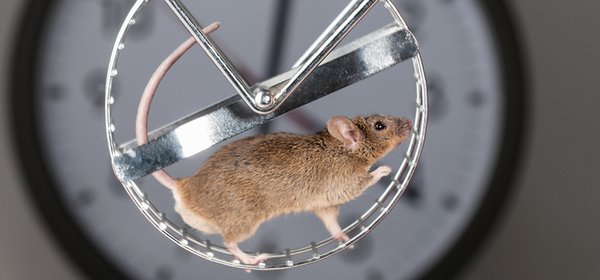
Research on mice at Max Planck Institutes
Leukocyte adhesion deficiency: genetically modified mouse cells fail to get a grip
Severe infections and a tendency to bleed are typical symptoms of a rare hereditary disease known as leukocyte adhesion deficiency III (LAD III). In this condition, a genetic mutation prevents white blood cells circulating in the blood from adhering to the vessel wall, migrating into the surrounding tissue and fighting infections there. Although the white blood cells of LAD III patients possess the required adhesion proteins, those proteins cannot be activated. The genetic defect responsible for this defect has long been unclear.
Researchers at the Max Planck Institute of Biochemistry have discovered that a protein called kindlin-3 activates the binding proteins of the blood cells: when they switched off the gene for kindlin-3 in mice, the white blood cells of the animals were no longer able to adhere to the cell wall in order to reach inflamed tissue. In addition, the mice showed an increased tendency to bleed.
The genetically modified mice have thus given scientists a clear indication of the cause of the genetic disease. It is now known that the cells of LAD III patients do not produce childlin-3 and that the defect can be repaired by introducing a normal kindlin-3 gene.
Either fat or thin
It has long been known that the cause of obesity lies in the genes. Researchers at the Max Planck Institute of Immunobiology and Epigenetics have investigated genetically modified mice that have only one copy of the Trim28 gene. Although the animals are genetically identical, their body weight fluctuates enormously: they are either normal or obese; there are no stages between. According to the researchers, this unusual weight distribution is due to a network of genes whose activity is epigenetically controlled. The results suggest that this network works differently than expected: not like a dimmer but like a typical light switch -either on or off, normal or obese.
Studies on overweight children suggest that the switch found in mice also exists in humans. Since environmental influences can alter epigenetic tags on the genetic material, the researchers’ findings could lead to new treatment options for overweight individuals. The scientists therefore want to find out whether a change of diet, stress reduction, or even drugs can influence the gene switch and permanently change it from the overweight to the normal-weight state.